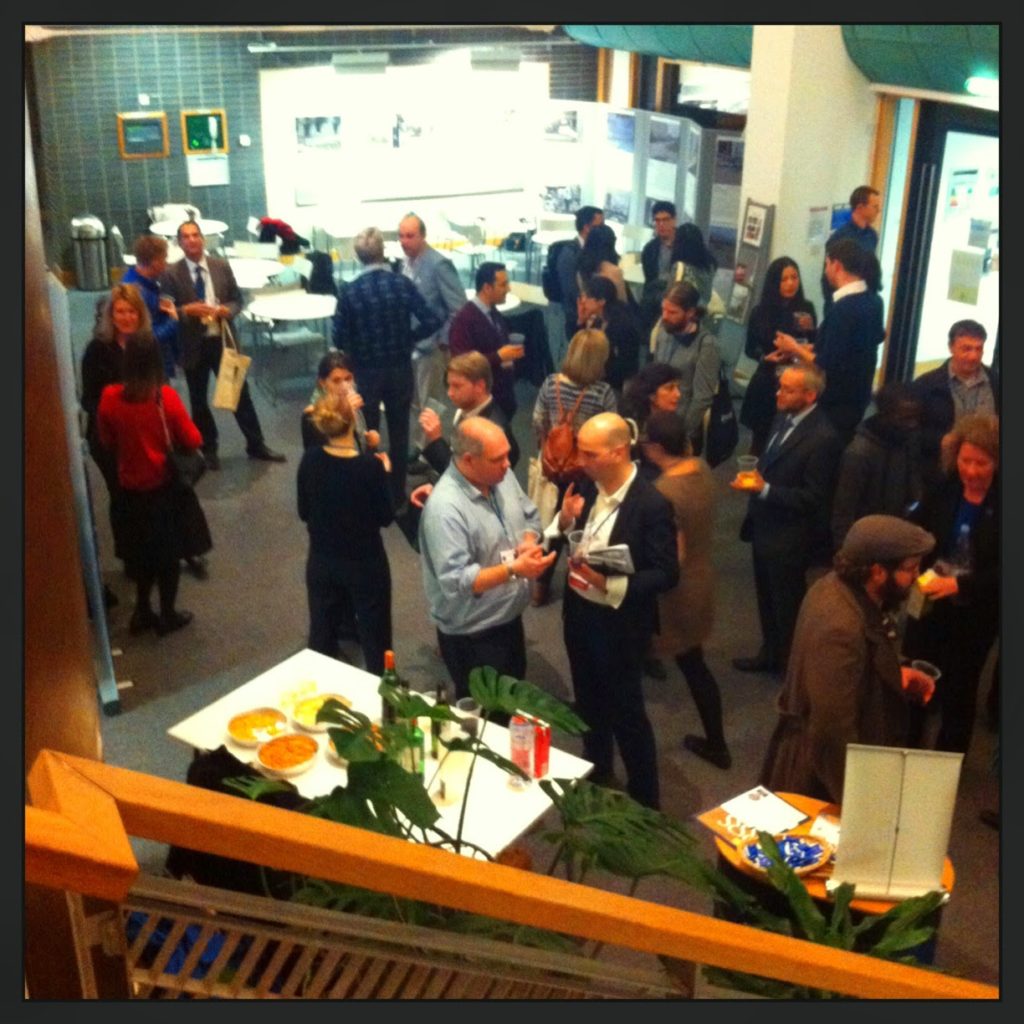This is a joint guest post by the RSA Early Career Representative, Julie Tian Miao & the RSA Student Representative, Eduardo Oliveira.
The Interdisciplinary Centre of the Social Sciences (ICOSS) of the University of Sheffield hosted the 2014 edition of the Regional Studies Association Early Career conference. The conference was sponsored by the new open access journal Regional Studies, Regional Science (RSRS). The
conference aimed to provide early career researchers the opportunity to network, collaborate and socialise with others researchers working in regional studies and science.
The two days programme covered topics from regional development to local enterprise partnerships with reflections on regional tourism regeneration and regional identity building across administrative regions.
The first day of the event ended up with the Student & Early Career Session: Pros & Cons of Publishing in Open Access organised and implemented by Julie Tian Miao (RSA Early Career representative) and Eduardo Oliveira (RSA Student Representative) which deserves a particular focus in this post.
Open-access publishing at a glance
A fully occupied conference room welcomed the Editor-in-chief of the first interdisciplinary Open-Access (OA) journal of the RSA – Regional Studies, Regional Science, Alasdair Rae and the co-editor Paul Braidford. With an interactive mode, Alasdair and Paul have elucidated the audience on how to submit their work to RSRS and how the process works. Both pointed out the pros of open access publishing such as: spreading the articles to a wider audience and getting it online quicker than the majority of current journals.
The mentored paper route or formative review process the RSRS journal offers to its early career researchers was pointed out as a great way to improve papers and getting published in high quality. Paul Benneworth, lead editor of the early career editorial team in his last blog
post has also clarified this. Furthermore, the editorial team has underlined the increased reputation of the journal in the last months and how it can work as a platform to expose the work of young academics. Examples of recent published papers gave a clear perspective on that.
The interactive presentation by the RSRS’s editorial team worked great as a warm up for the discussion with the debate leaders and the conference delegates. Sally Hardy (RSA Chief Executive) and Paul Hildreth (RSA board) joined the discussion, who also gave a plenary talk
to the audience at the start of the conference. The delegates spoke their minds regarding the pros and cons of publishing in open access and the debate leaders clarified their doubts.
Pros and cons of open-access publishing
Remarks regarding the impact of having an article published in RSRS compared with other journals, clarifications about the formative review process, and the time of the review process emerged as core questions of the RSA community who attended the session. Several ‘pros’
have been identified in particular regarding the high visibility of the journal and the possibility for academics to showcase their work in a worldwide platform free of access restrictions. In addition, the credibility of the journal and the highly professional body of editors and reviewers put the journal ‘on spot’ and open access as an effective way to build academic reputation. Another pro was the fact that the journal is an online journal and the contributors can see their work online very quickly and also benefit from the effects of worldwide promotion which is essential in today’s competitive arena.
Of course some ‘cons’ arose in the middle of a dynamic discussion. The submission process was mentioned (similar to the traditional journals’), as paper proposals first follow a detailed revision by the editorial team and they must compete with each other. Although, as Alasdair
Rae mentioned with RSRS the process is lightly friendlier. Moreover, the contributors always receive regionally-insightful and detailed comments, which enable them to improve the paper and re-submit it.
Final thoughts
The interactive forum ended with some tips in how to publish in the journal. Those that are interested should read carefully the instructions and write a paper proposal. The proposals should have a clear regional dimension and geographical focus being novel in the approach or the case study explored. Furthermore, the editors appreciate excellence and fresh thinking as well as robust reasoning and up to date references and data. Some final words of encouragement to write a paper proposal suggested to experiment ideas and interact with the RSRS editorial
team in order to publish an outstanding article and gave the right motto for the drink reception which followed the interactive forum.
The 2nd day of the event went perfectly well with a large number of presentations from a multicultural group of delegates. Final notes by Martin Jones (University of Sheffield) and Gillian Bristow (Cardiff University) put the cherry on the top of a well baked cake with interesting regional studies and sugared with regional science.
Attendances had provided very positive feedbacks (as you can see below) about this conference as well as the Students & Early Career Event (We will upload the video of the whole social event later). It was also a great motivational boost as we are already in high gear in preparing the Regional Studies Association Winter Conference 2014, 27th-28th of November in London, and the Regional Studies Association Annual Conference 2015, 24th-27th May in Piacenza, Italy, which will engage with Milan Expo 2015.
